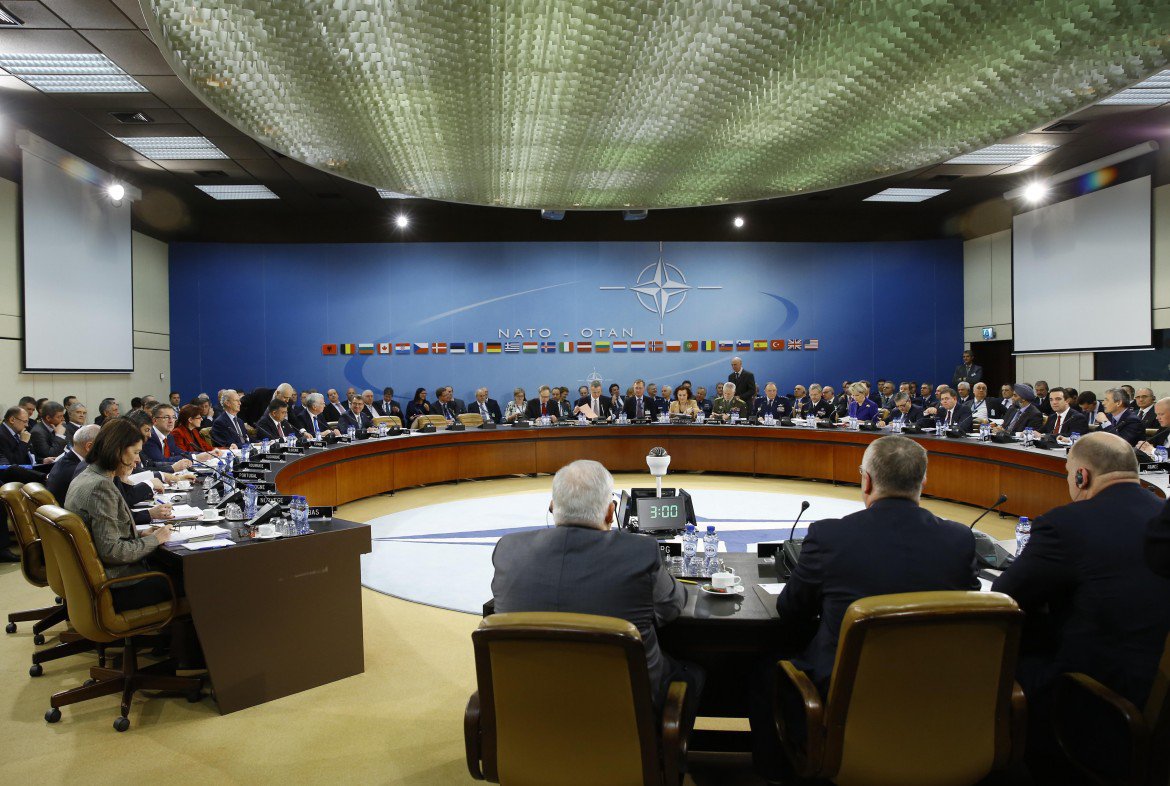Syrian War
What the NATO refugee intervention really means
For the first time, NATO is launching an operation in the Mediterranean against refugee smugglers. The fast decision contrasts E.U. paralysis, but there are likely other motives.

Facing inaction from the European Union, NATO has announced plans to intercept people-smuggling operations in the Aegean Sea, the organization’s commanders announced on Thursday. U.S. Secretary of Defense Ashton Carter issued a forceful justification for the surveillance mobilization, saying, “These are people’s lives and destinies at stake here.”
After a Turkish and German request for urgent action, NATO Secretary General Jens Stoltenberg said the commander of the Allied forces in Europe, Philip Breedlove, is ordering immediate naval deployment to the Aegean. NATO has stated that its mission is not to impede or reject boats of refugees but, as Carter said, to strike the “criminal network that takes advantage of these poor people.”
This is the first time that NATO has officially committed to action relating to refugees. Until now they had always refused, arguing that the Atlantic alliance has no mandate to monitor borders or fight criminal organizations. But on Wednesday the NATO countries’ ministers of defense were forced to consider a request submitted by Turkey and backed by Germany to assist the Turkish coast guard in the fight against illegal immigration to Europe.
The request, which came after German Chancellor Angela Merkel met with Turkish Prime Minister Ahmet Davutoglu, “surprised everyone,” according to NATO headquarters in Brussels. But Stoltenberg issued assurances the group would “seriously study the question.” Greece was especially surprised, and irritated — they view the proposal as a potential extension of Turkish activity in Greek territory. Prime Minister Alexis Tsipras sought an explanation from Merkel, and a Greek spokeswoman clarified, “If it [only] involves smugglers, we do not see it negatively.”
The NATO leaders have yet to define most details of the operation, including how NATO forces will work together with Frontex and national military operations already in place.
The intervention is another sign of the E.U.’s inability to cope with the refugee crisis. While Europe spent months wrangling over resettlement quotas, as migrants drowned, NATO in a few hours organized a major military response.
The European Commission’s latest proposed refugee resettlement plan appears dead on arrival. Borders within the E.U. are closing one after another (Austria’s shut down on Thursday), and the Schengen is increasingly at risk. The idea of a European military mission at the Greek-Macedonian border, studied by E.U. foreign ministers a few days ago, was scrapped upon opposition from Greece and Luxembourg.
As a stopgap, the E.U. continues to woo Turkey, closing its eyes to the sorry state of the country’s democracy and the ambiguity of Ankara’s response in Syria. In June, Brussels is expecting an agreement that would reopen Turkey’s borders and, by September, to classify it as a “safe” country of origin (the European Commission proposed the same thing last September).
“The European demand for Turkey to open its borders is a sign that the E.U. is in a panic,” said Selim Yenel, the Turkish ambassador to Europe. This is the game Turkey is playing, not only securing military support from NATO but also visa liberalization and financial aid of €3 billion (Ankara still wants more). For Turkey, the NATO intervention is a means to move Allied forces into closer proximity to its conflicts against Russia and Syrian Kurds.
It comes in addition to military support NATO is already providing to Turkey, an ally since 1952. Over the last 15 years, NATO has had three ships under German command off the coast of Cyprus. For Stoltenberg, the “ideal” is to increase that number to between five and seven.
The mobilization is not outside NATO’s own interests: namely to position itself against Russia, which has intervened forcefully in support of the Syrian regime. NATO has also taken out insurance against Moscow in Eastern Europe, launched after the annexation of Crimea and the invasion of Ukraine. After Poland and Baltic countries called for an increased NATO presence in the east, the United States announced plans to send more troops, and Britain will send five ships to the Baltic Sea capable of deploying soldiers to the border with Russia and Eastern Europe.
On Thursday John Kerry and his counterpart Sergey Lavrov ironed out the fragile humanitarian ceasefire. It comes just days after Russia’s intensification of airstrikes on Aleppo, which Western countries sea as Moscow’s (successful) attempt to scuttle peace talks in Geneva. Those faltered Feb. 3 before they truly began.
Negotiations could resume, possibly even before Feb. 25, the deadline suggested by the United Nations’ Syrian crisis envoy. But Washington is already preparing for the worst, with U.S. envoy to the anti-ISIS coalition, Brett McGurk, saying it’s necessary to anticipate a failure of diplomacy. Saudi Arabia and the United Arab Emirates said they would consider sending ground troops into Syria.
Meanwhile, the humanitarian toll is mounting. The Syrian Center for Policy Research said Thursday that the total dead has now reached 470,000. The U.N. High Commissioner for Human Rights says 320,000 people are under siege in Aleppo and 51,000 are on the run.
Originally published at http://ilmanifesto.info/la-nato-interviene-nella-crisi-dei-profughi/ on 2016-02-12
